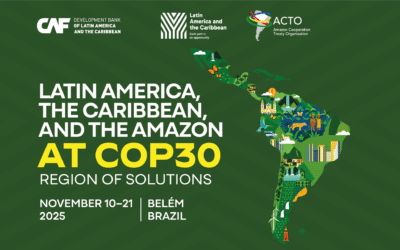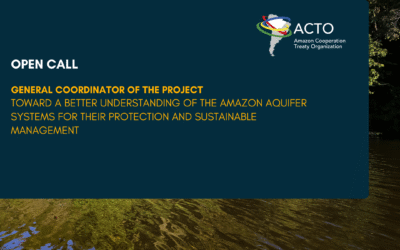Work in the field of forestry research will be presented by the ACTO at the XXV World Congress of the Forest Research and Cooperation for Sustainable Development (IUFRO), which is being carried out in Curitiba, PR (Brazil).
The congress, which will be held until October 5, is one of the largest forest research events in the world and is being held for the first time in Latin America. This meeting represents an opportunity to exchange experiences and knowledge in technological innovations, as well as more recent results of research and trends for the future of forestry and agroforestry research in all parts of the globe.
The event brings together more than three thousand participants from all over the world who will discuss the following topics: forests for people; forests and climate changes; forests and forest products for a greener future; biodiversity, environmental services and biological invasions and; Forest, soil and water interactions.
In addition, the congress provides for different categories of participation: researchers, professors, students and professionals from the forest sector worldwide; as well as regional and global organizations committed to the challenges that the forestry sector faces for the benefit of forests and the world population.
Know the works that will be presented by ACTO:
Monday, September 30
Theme: Forests for people
A6c “Community and Family Forest Management” (15:30 -17: 30)
“Wood producing forests and biodiversity: ecologically responsible forest management under the approach of the ITTO / IUCN Guidelines in the Amazon Region”(15:50 – 16:10 – A6d)
Wednesday, October 2
Theme: Forests for people
A6c: Challenges to sustainable forest management to enhance traditional communities and smallholders ’livelihoods in the Amazon basin (8:30 – 10:30)
Theme: Forests for people
A6c:”Democratizing biodiversity monitoring in the ACTO Member Countries: collective contributions on the development of a low-cost monitoring tool for Amazonian production forests”(10:17 – 10:30 – A6c)
| Wood-producing forests and biodiversity: ecologically responsible forest management under the focus of the ITTO / IUCN Guidelines in the Amazon Region
The improvement of forestry practices and techniques, based on the incorporation of theoretical and practical aspects of biodiversity conservation at different stages of forest management, can lead to positive changes in biodiversity levels and, consequently, in livelihoods of communities and families that depend on forests, as well as favouring the maintenance and improvement of the benefits offered to society by ecosystem services. In this regard, the IUCN / ITTO Guidelines were created, which consist of 11 principles and 46 guidelines for tropical production forests, which deal with the sovereignty of society, international commitments, politics, education, forest management, biodiversity conservation, among other aspects. On the basis of these guidelines, an analysis of the eight ACTO Member Countries was carried out: Bolivia, Brazil, Colombia, Ecuador, Guyana, Peru, Suriname and Venezuela, in two stages. The first one focused on the quantitative evaluation of the degree of implementing guidelines and the second stage, the qualitative one, composed of detailed information by pre-established guidelines and principles. |
| A6c
To democratize biodiversity monitoring in ACTO member countries: collective inputs on the development of a low-cost monitoring tool for Amazonian production forests Abstract One of the principles of adaptive management is to frequently read the environment in order to introduce management changes accordingly. Thus, the ITTO/IUCN Guidelines for biodiversity conservation in tropical production forests (2009) recommend the development of low-cost monitoring programs serving the needs of forest managers, making information on failures and achievements widely available. In the framework of the ITTO/CBD/ACTO International courses in biodiversity conservation through ecologically responsible management of Amazonian production forests, recently implemented in Brazil, Peru and Guyana, a collective exercise on the development of a monitoring tool was proposed to participants and regional training centers. Utilizing the HCVN-Forest Integrity Assessment (FIA) tool, which uses habitats as proxies for biodiversity, and that has not yet been adapted to the Region, as a canvas, around 80 forestry professionals and managers working in different sectors at ACTO member countries provided technical and multi-actor input into this endeavor. Most participants agreed on the importance to make of biodiversity monitoring a participatory exercise, highlighting the benefits for local communities empowerment and to set up feasible conservation goals at the forest management unit scale. Suggestions on adding variables such as soil type, canopy height and forest health indicator species were made and, particularly for forestry operators, the opportunity to look at forest habitats, “rather than just measuring”, and to apply local knowledge was highly appreciated. Some resistance was also encountered, which demonstrates the need to work harder in the diffusion of simpler and more cost-efficient biodiversity monitoring tools, such as FIA. |
Source: OTCA











